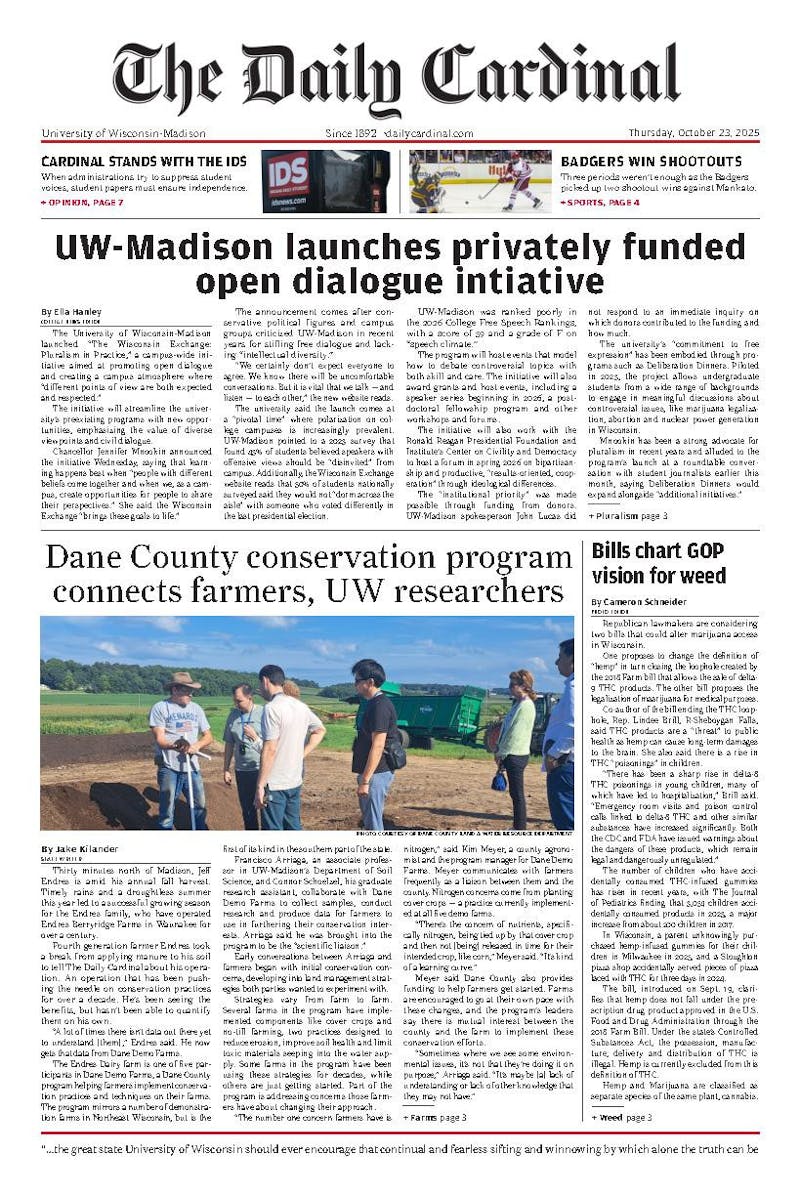At least one time in most UW-Madison students' college careers, they will enter one of the numerous advising offices on campus in hopes that one person will help steer them through their college experience. Often left confused, frustrated, relieved or motivated, thousands of students depend on advising, whether it be at the college or department level, to help them decipher the complicated system which they will then use to, ideally, obtain their degree.
While the advising process at UW-Madison may be far from perfect, the university is constantly working to improve the system from both the student and administrative perspective.
The Cross College Advising Service is one office taking action to evaluate advising, according to Director Timothy Walsh. CCAS is currently distributing surveys to students who pass through its doors, asking questions such as what they think about the new advising centers in Chadbourne, Bradley and Sellery residence halls.
A similar survey last year of more than 350 students indicated to Walsh something he may not have expected.
\The results were staggeringly good,"" he said, citing a 98.5 percent rating of either ""excellent"" or ""good"" for quality of service, and a 98.9 percent approval for adviser's ability to provide pertinent information.
The information is equally positive for the university at-large, according to Jeff Hamm, assistant dean of the School of Education, giving the example of the Sweet Survey, conducted for a few consecutive years by Professor Emeritus Jim Sweet.
In his study, administered in the mid-1990s, Sweet discovered that while students were, in general, content with their individual advising experiences, they were more negative when asked to rate the process at large.
""It's like everybody says, do you like politicians, do you trust politicians, and they say no. Do you like your particular politician? We love our particular politician. We just hate politics. It seems like an analogous reaction,"" Hamm said.
The ""puzzling"" trend, as he describes it, is not unique to UW-Madison, as indicated in data from The National Survey of Student Engagement.
""It's the lowest rank service or activity among all the colleges in terms of satisfaction. It's way below instruction and everything else,"" Hamm said.
""And when you ask very specific questions about what they're upset about ... people say they're fine with that.""
One of the explanations for this phenomenon may be that students do not realize that the system works by decentralizing the offices. In other words, advising is not always a one-stop process.
""You won't ever find an advisor who knows everything about everything a student wants to know about academic advising,"" Hamm said. ""A student could come to me and I'd know a lot about education. But would I know a lot about [Letters and Science]? Not very much.""
According to Ann Groves Lloyd, director of L&S and Human Ecology career services, having offices very specific to majors creates some hurdles for students.
""The challenge with the decentralized system is you need to be proactive and know where to go,"" she said. ""And the challenge for us is to be in your face and let you know that we're here to help you.""
Departments and staff are not the only ones exploring ways to improve advising at UW-Madison. The Associated Students of Madison advising campaign is an effort by students to work collaboratively with advising offices, according to campaign Chair Lisa Streit.
Last semester, the advising campaign surveyed students about peer advising, for example, which is one method of advising Streit said she hopes can be expanded.
""When you're talking to a peer adviser you're getting firsthand experience from other students,"" she said.
Streit also said that she is still impressed with the individual hard work of advisers.
""Although not all students can have the best experiences with them, it seems clear that they're dedicated and they want to help students,"" she said. ""It's not them, it's the system more than advisers.""





